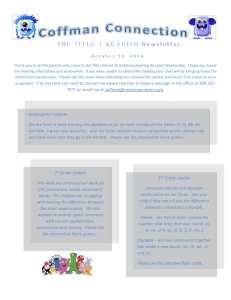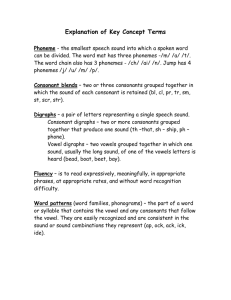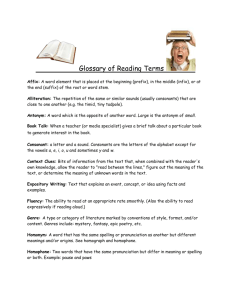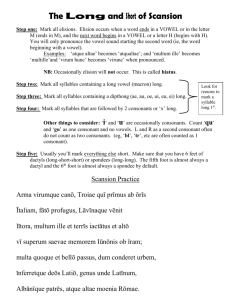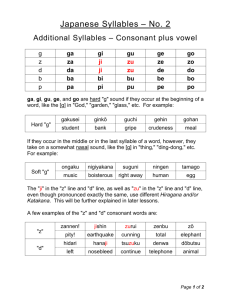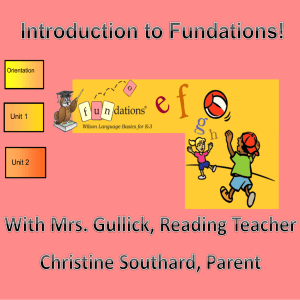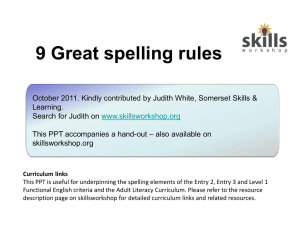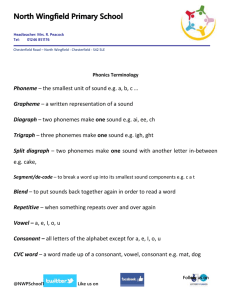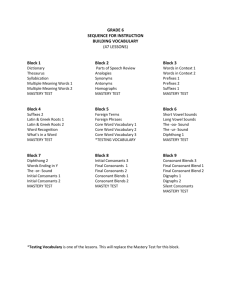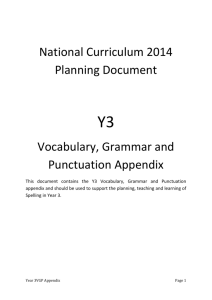Diagnostic Decoding List of Skills by Domain (for PRC)
advertisement
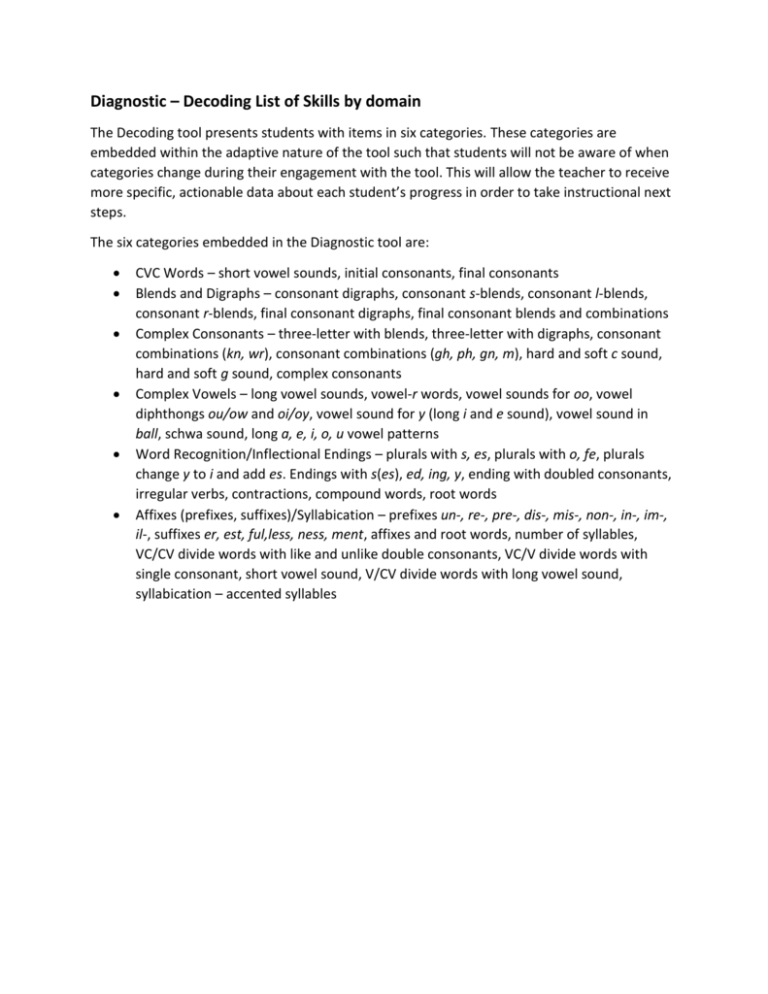
Diagnostic – Decoding List of Skills by domain The Decoding tool presents students with items in six categories. These categories are embedded within the adaptive nature of the tool such that students will not be aware of when categories change during their engagement with the tool. This will allow the teacher to receive more specific, actionable data about each student’s progress in order to take instructional next steps. The six categories embedded in the Diagnostic tool are: CVC Words – short vowel sounds, initial consonants, final consonants Blends and Digraphs – consonant digraphs, consonant s-blends, consonant l-blends, consonant r-blends, final consonant digraphs, final consonant blends and combinations Complex Consonants – three-letter with blends, three-letter with digraphs, consonant combinations (kn, wr), consonant combinations (gh, ph, gn, m), hard and soft c sound, hard and soft g sound, complex consonants Complex Vowels – long vowel sounds, vowel-r words, vowel sounds for oo, vowel diphthongs ou/ow and oi/oy, vowel sound for y (long i and e sound), vowel sound in ball, schwa sound, long a, e, i, o, u vowel patterns Word Recognition/Inflectional Endings – plurals with s, es, plurals with o, fe, plurals change y to i and add es. Endings with s(es), ed, ing, y, ending with doubled consonants, irregular verbs, contractions, compound words, root words Affixes (prefixes, suffixes)/Syllabication – prefixes un-, re-, pre-, dis-, mis-, non-, in-, im-, il-, suffixes er, est, ful,less, ness, ment, affixes and root words, number of syllables, VC/CV divide words with like and unlike double consonants, VC/V divide words with single consonant, short vowel sound, V/CV divide words with long vowel sound, syllabication – accented syllables
